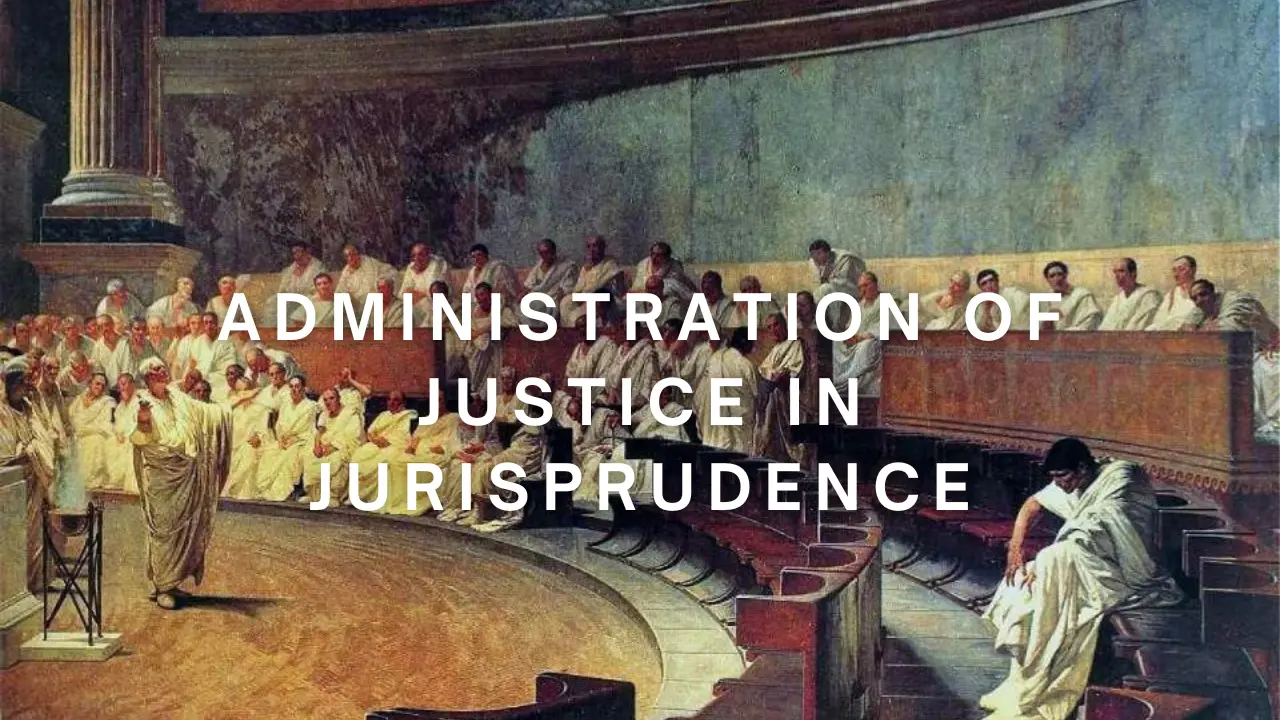Introduction
Hey there! Let’s dive into a topic that’s crucial for any society: the administration of justice. This isn’t just about courts and judges—it’s about how we maintain fairness, protect rights, and resolve disputes. Ready to explore? Let’s go!
What is the Administration of Justice?
The administration of justice manages how society enforces laws and resolves disputes. It ensures that everyone plays by the rules and that there are consequences for breaking them. Simply put, it’s the system that keeps things fair and right.
Governments play a key role in the administration of justice. They can use force if necessary to maintain order and ensure that people follow the laws. This involves protecting the country from external threats and ensuring fairness within its borders.
Also Read: Classification of Law
Objectives of Administration of Justice
Maintaining Order
The administration of justice is essential for keeping society orderly and peaceful. It sets clear rules and expectations for behaviour, helping to prevent chaos.
Protecting Individual Rights
Ensuring that everyone’s rights are protected is a fundamental goal. This means providing remedies when rights are violated and holding wrongdoers accountable.
Ensuring Fairness
Justice must be fair and impartial, providing equal treatment for all under the law. This builds trust in the legal system and promotes social harmony.
Upholding the Rule of Law
The rule of law means that no one is above the law, and everyone is subject to the same laws. This principle is crucial for a just society.
Origin and Growth of the Administration of Justice
Humans are naturally social creatures, and living together in communities inevitably leads to conflicts. In the early days, disputes were often settled by community elders. As societies grew more complex, there arose a need for formal systems of justice.
The concept of the State emerged to manage these systems, providing a structured approach to maintaining order and administering justice. Over time, this evolved into the sophisticated legal systems we have today, with courts, judges, and a detailed body of law.
Advantages of Administration of Justice
Uniformity and Consistency in Law: Laws are applied consistently, ensuring predictability and fairness.
Collective Wisdom: Laws reflect the collective wisdom of society, guiding behavior and reducing the risk of unjust decisions.
Consistent Application: Judges apply the law consistently, ensuring similar cases are treated alike.
Regulation of Conduct: Knowledge of the law helps citizens regulate their behavior, promoting a law-abiding society.
Disadvantages of Administration of Justice
Rigidity: Legal systems can be slow to adapt to societal changes, sometimes leading to outdated laws.
Technicalities and Formalities: Legal processes can be complex, making it difficult for ordinary people to navigate without assistance.
Complexity: The law must address a wide range of issues, leading to complexity that can be hard to understand and apply.
Unintended Consequences: Legal systems can sometimes create new problems or injustices, despite their best intentions.
Types of Administration of Justice
Criminal Administration of Justice: This deals with crimes and punishment. It focuses on punishing wrongdoers and maintaining law and order. Punishments can range from fines to imprisonment, depending on the severity of the crime.
Civil Administration of Justice: This handles disputes between individuals or entities, providing remedies such as compensation. It deals with enforcing primary rights (like contract rights) and sanctioning rights (arising from breaches of primary rights).
Conclusion
The administration of justice is vital for maintaining a fair and orderly society. It protects individual rights, ensures fairness, and upholds the rule of law. A robust justice system reflects a society’s commitment to fairness and equality, ensuring that everyone is treated with dignity and respect.
So, the next time you think about justice, remember that it’s the foundation of a peaceful and fair society. It’s what keeps everything running smoothly, ensuring that we all play by the same rules and enjoy our rights.
FAQ
1. What is the administration of justice?
Administration of justice is the system and processes through which laws are enforced and disputes are resolved within a society.
2. Why is the administration of justice important?
It maintains order, protects individual rights, ensures fairness, and upholds the rule of law, promoting social harmony and trust in the legal system.
3. What are the types of administration of justice?
There are two main types: criminal administration of justice, which deals with crimes and punishment, and civil administration of justice, which handles disputes between individuals or entities.
Also Read: Purpose and Function of Law
Reference: legalserviceindia.com
